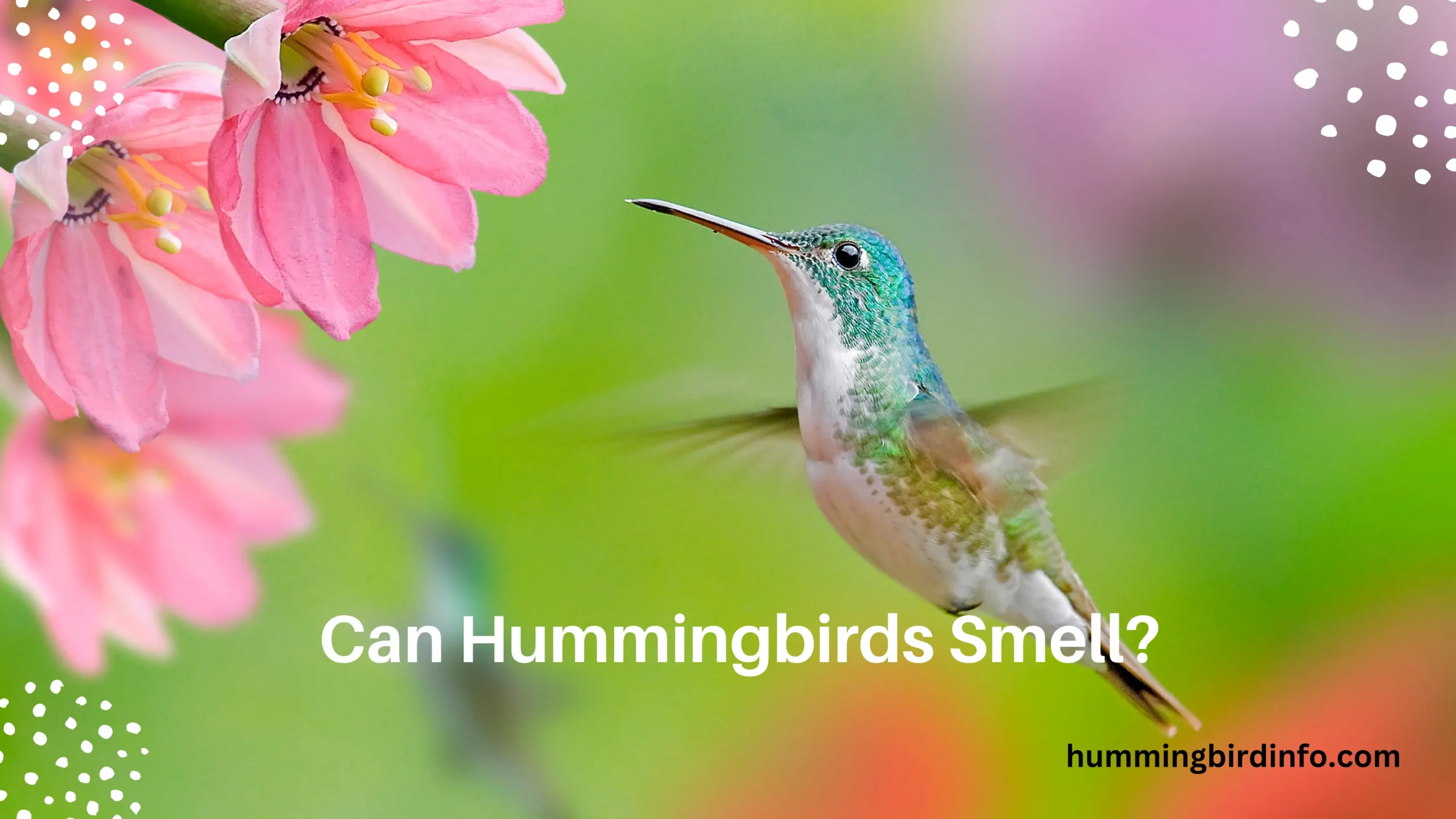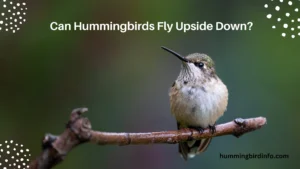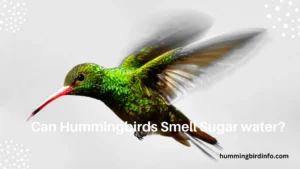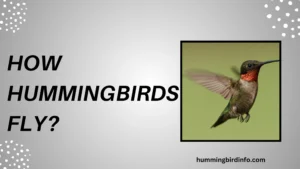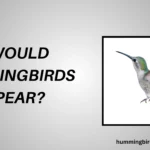Hummingbirds are some of nature’s most mesmerizing creatures—tiny, vibrant birds that zip through the air with impossible speed and grace.
With wings that beat over 50 times per second, they hover, dart, and glide like no other, fueled by nectar and built for flight. Their razor-sharp vision is well-known, helping them locate flowers from incredible distances.
But here’s a question that often flies under the radar: Can hummingbirds smell? For years, the answer was assumed to be “no.” Many scientists believed that, unlike other birds or mammals, hummingbirds relied almost entirely on vision, with a poorly developed sense of smell. This idea shaped everything from how we studied them to how we designed their feeders.
However, new scientific studies are shaking up what we thought we knew. Researchers have discovered that hummingbirds can detect certain scents, especially ones linked to danger.
This blog dives into this fascinating shift in understanding—how smell works in hummingbirds, why it matters, and what it means for their behavior and survival.
Contents
The Historical Perspective on Hummingbird Senses
For decades, scientists believed that birds, including hummingbirds, relied mostly on vision and hearing.
Their sharp eyes helped them navigate, spot predators, and find food, while their ears picked up on calls and warnings. Smell, on the other hand, was often dismissed.
This belief came partly from hummingbird brain anatomy—they have tiny olfactory bulbs, the part of the brain that processes smell. Compared to birds like vultures or seabirds, hummingbirds seemed poorly equipped for detecting scent.
Their small size and flying lifestyle also contributed to this assumption.
Moreover, bird-pollinated flowers usually don’t have strong fragrances. Unlike insect-pollinated blooms that use scent to attract bees and butterflies, hummingbird flowers focus on bright colors and sweet nectar. This led scientists to believe smell wasn’t needed in a hummingbird’s world.
The Groundbreaking Research That Changed Everything
A breakthrough study from the University of California, Riverside, turned this old thinking on its head. Researchers tested how hummingbirds responded to different scents while feeding. The results were astonishing and clear.
The setup involved two feeders: both looked identical and contained sugar water, but one was infused with specific scents. These included bee pheromones, ant pheromones, formic acid, and a harmless chemical called ethyl butyrate used as a control.
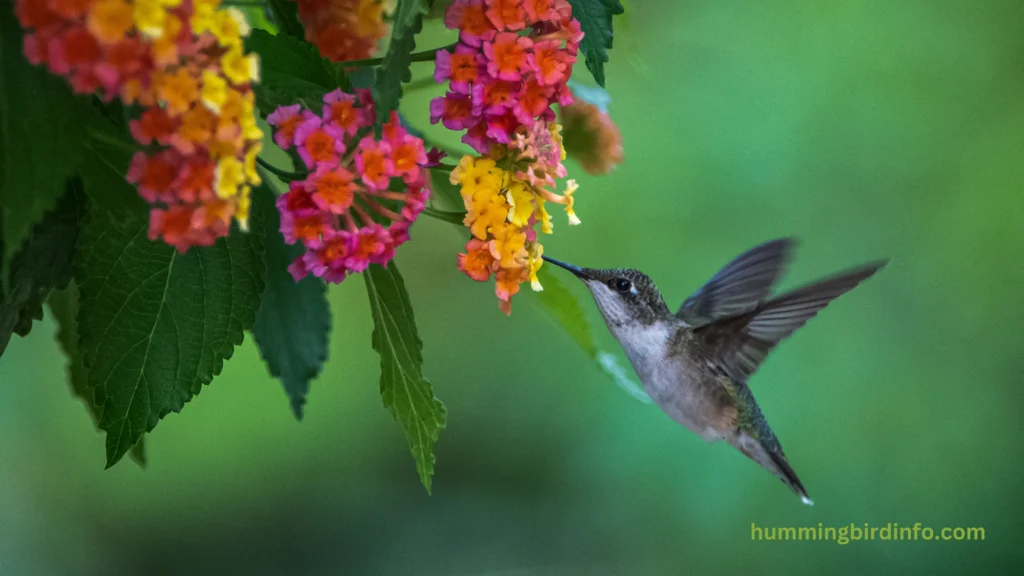
The hummingbirds avoided the feeders that smelled like ant pheromones and formic acid, showing they could detect danger by scent. Interestingly, they did not avoid the bee scent or the control scent, proving their responses weren’t random but based on specific threat detection.
This study provided solid evidence that hummingbirds use smell to make decisions—especially to avoid harmful insects. It changed the way we see their behavior and their complex sensory world.
How Hummingbirds Use Their Sense of Smell
Even though their olfactory bulbs are small, hummingbirds have functional nasal cavities and scent receptors. These allow them to detect airborne chemicals and translate them into behavioral responses. It’s a supportive system, not the main one, but it still plays a vital role.
In the wild, being able to smell helps them avoid predators and toxic insects. For example, if a flower or feeder smells like an ant nest, it’s best to stay away. This enhances their survival, especially since they feed frequently and must be alert.
While hummingbirds mainly use vision to find flowers, their sense of smell offers extra information. When visual cues aren’t enough, scent can help them decide where to feed and what to avoid. It’s an elegant balance between senses.
The Bigger Picture and Future Research
This discovery challenges long-standing views in ornithology and shows that avian senses are more complex than previously thought. It reminds us that birds are not just visual animals but multi-sensory beings.
There are still many questions to explore. What other scents can hummingbirds detect? Do different species have different scent capabilities? Could smell be used for navigation, territory marking, or even mating?
This knowledge might also influence how we protect hummingbird habitats. For example, understanding their reactions to chemical pesticides or human scents could help in creating safer environments and smarter garden practices.
How This Affects Our Understanding of Hummingbird Behavior
Knowing that hummingbirds can smell helps us interpret their behavior at feeders and in nature. It explains why they might avoid certain flowers or feeders, even if they look appealing. The scent could be signaling danger or contamination.
It also helps us understand how they navigate unfamiliar areas. Smell could assist in recognizing safe feeding zones, recently visited flowers, or even dangerous territories with predator traces.
This opens up a world of insight into how hummingbirds make decisions. Their behaviors are more than instinct—they’re informed by a subtle, invisible world of scents that scientists are only beginning to understand.
Conclusion:
We’ve long admired hummingbirds for their dazzling colors and aerial mastery, but now we know they have another trick: a working sense of smell. Far from being scent-blind, these tiny birds use their noses to detect danger and make smart decisions.
This discovery adds another layer to the wonder of hummingbird biology.
Their world isn’t just seen—it’s also scented, navigated by chemical cues in the air that guide them to safety and food. It’s a reminder of how much we still have to learn from nature.
As science continues to explore their sensory world, hummingbirds remain a symbol of nature’s complexity and surprise. Even the tiniest creatures can hold the biggest secrets—sometimes, right under their beaks.
FAQ’s
1. Can hummingbirds really smell?
Yes, hummingbirds can smell, as shown by recent scientific research. They use scent primarily to avoid danger like harmful insects.
2. Do hummingbirds use smell to find flowers?
They mostly rely on vision for finding flowers. However, smell may offer supportive cues, especially when scent indicates danger.
3. What scents do hummingbirds avoid?
Hummingbirds avoid scents from ants and formic acid, which are signals of potential threats or toxins.
4. Do all birds have a sense of smell?
Yes, but the strength of their sense of smell varies greatly. Vultures and seabirds have strong olfactory systems, while others, like hummingbirds, were once thought to have limited smell.
5. Why did scientists think hummingbirds couldn’t smell?
Because they have small olfactory bulbs, and bird-pollinated flowers lack scent, it was assumed smell wasn’t important for them.
6. Can hummingbirds smell humans or pets?
There is no direct evidence, but it’s possible they can detect certain human scents or chemicals if they’re strong or unusual.

